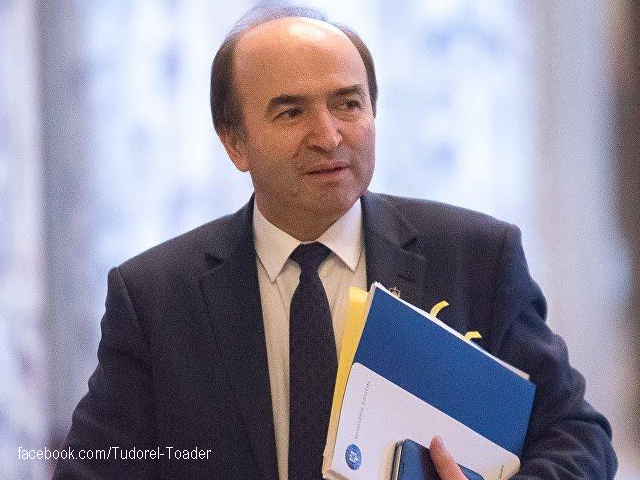Reactions to the new legislative changes in the field of justice
The emergency decrees promoted by the Romanian Justice Minister, and the justice overhaul in particular, have triggered a number of reactions
Warning: Trying to access array offset on null in /home/web/rri.ro/public/wp-content/themes/rri/template-parts/content.php on line 53

Warning: Trying to access array offset on null in /home/web/rri.ro/public/wp-content/themes/rri/template-parts/content.php on line 98
Ştefan Stoica,
21.02.2019, 14:47
The European Commission recommended to the Romanian authorities last fall to suspend the implementation of the justice laws and of the subsequent emergency decrees and revise them in keeping with the recommendations of the Venice Commission and of the Group of States against Corruption (GRECO).
This recommendation was included in the report issued regularly under the Cooperation and Verification Mechanism and was in tune with the strong opposition to these laws at home, expressed by civil society, judicial institutions, magistrates’ associations and the opposition. Two months on, Justice Minister Tudorel Toader passed, through emergency decree, a series of modifications to the justice laws, regarding, among others, the appointment of senior prosecutors and even the responsibilities of the chief of the investigation division.
Toader has explained that these positions can also be occupied by prosecutors who previously worked as judges and that the current office holders only have 45 days until the new appointment procedures are completed. Some of these modifications have allegedly been made following discussions with the Higher Council of Magistracy that provided many of the solutions, Minister Toader said in answer to the criticism levelled at him by the institutions affected by the changes.
The National Anti-Corruption Directorate, however, says we are not dealing with an extraordinary situation that could justify the adoption, through emergency decree, of provisions regarding the dismissal of magistrates or the changes in the organisation of prosecutor’s offices. In their turn, prosecutors with the Directorate for Investigating Organized Crime and Terrorism have criticised the emergency decree, saying that the modifications break the Constitution and prevent the Public Ministry from doing its job.
The Higher Council of Magistracy itself, through the division for prosecutors, has signalled the fact that modifying the justice laws is likely to seriously impact the activity of prosecutor’s offices. The European Commission has also reacted. Its spokesperson, Margaritis Schinas, has said that the Commission is following with great concern the latest developments concerning the rule of law in Romania.
“Both the content and the procedure of the latest changes using emergency ordinances without any consultation with the judiciary and stakeholders seem to be in direct contradiction with the recommendations of the Commission,” Margaritis Schinas has also said. He reminded that in its November report, the European Commission recommended to Romania to create a solid and independent system of appointing senior prosecutors, based on clear and transparent criteria and supported by the Venice Commission.
Prosecutors with the Prosecutor’s Office of the Brasov Tribunal, in central Romania, have protested in front of the institution and displayed banners saying “Respect the VCM”, “Respect the judiciary’s independence” and “Independent prosecutor.” In their opinion the changes to the statute of magistrates are seriously impacting the independence of the judicial system. The main parties in opposition, the National Liberal Party and the Save Romania Union, have tabled a simple motion on justice in the Chamber of Deputies. They accuse the power of having modified criminal legislation with the only purpose of protecting wrongdoers. (Translated by E. Enache)






























